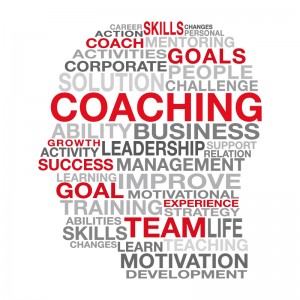Executive Coaching
We consider Executive Coaching to be coaching for anyone in a leadership position at the Vice President or higher level. Unlike the Corporate Level Coaching, Executive Coaching is focused strictly on the individual and the issue(s) or concerns they have or wish to improve. Men and women in this category typically (although there is no guarantee) have already had all of the training courses, seminars, classes, and presentations on leadership, communication, diversity, and a host of other topics of concern. There is no training here. This is all about a problem…their problem and what is the best way of bringing that problem under control so they will now add value to the company once again.
It is important to acknowledge that these are healthy people to begin with. Their problem does not revolve around any of the four major addictions (alcohol, drugs, gambling, or sex), they have not deliberately broken the law, and they are not psychologically damaged. This does not mean that they may have had a problem with these issues previously, but it does mean that a professional coach is not being called in to fix these types of problems.
The coach has been called in to help a particular person improve their performance or save him or her from being asked to leave the company. Either the company or the person in question has asked for a professional coach to help overcome a “hindrance” to the performance expected.
Executive Coaching can be used for multitude of different reasons:
(This is by no means a comprehensive list, but a beginning.)
To improve speaking capabilities
Regain confidence
Improve personal communication capabilities
Preparing to work overseas
Making adjustments to Work / Life schedules
Fighting or preventing stress
Recognition of personality deficiencies
Fighting fear of _______________ (you fill in the blank)
For a trustworthy “Sounding Board”
A sincere desire for discretion
At this level, it is all about becoming a better person and leader. The better person becomes a better leader. Coaching is not magic. It is a concerted effort to help a person find a way to make some small adjustments and become the person they want to be. It does not mean that they are unhappy, despondent, or miserable now; it simply means they want to improve. And that is always a good thing.
Remember that coaching is not “telling” a person how to behave; it is allowing the person to recognize the need to make a change (they desire), which empowers them to follow through with the change themselves. That, in it’s self, is a major step, but ensuring that a change is repetitiously continued to become a habit, is one of the hardest things we face. Coaching is the answer or remedy for this. The reason for this is simple: accountability. In addition to professional and personal introspection, holding a Subject accountable is a major portion of a good coaching process and there is no substitute for that element, nor does any single portion of the process render more results.
The minimum acceptable time for coaching to become effective is 6 months, and at this level, the propensity to go longer is more than a possibility. Executives are busy people and the coordination of time and meetings can be more difficult, but the real reason for a longer term is normally a result of tougher habits to discover and break as well as simply deeper issues. If you have a habit pattern developed over 20 years, you will not break that over night.

